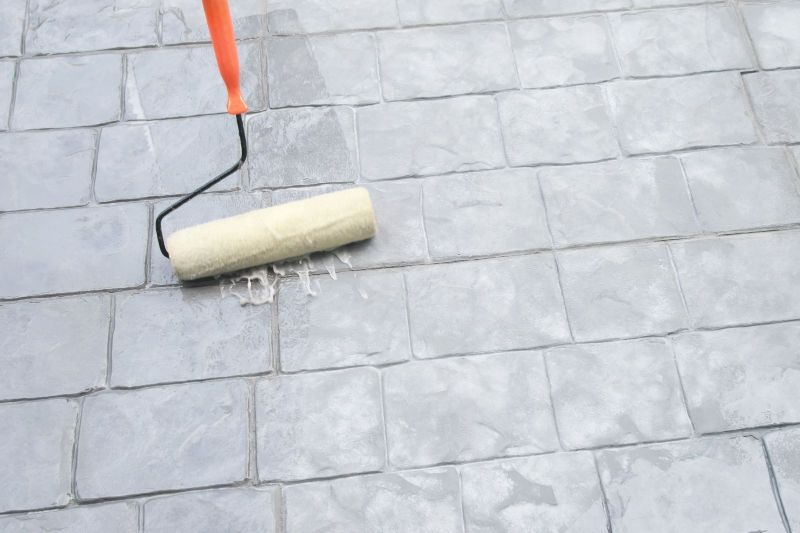A strong and stable foundation is vital for any building. It supports the entire structure and ensures its durability and longevity. However, even the most robust foundation can be compromised if not adequately protected against water damage. Waterproofing plays a crucial role in safeguarding your foundation from moisture-related issues that can lead to costly and potentially hazardous problems. In this article, we will explore the significance of waterproofing and its role in preserving the integrity of your foundation.
Understanding the Impact of Water on Foundations
Water is one of the most potent natural forces capable of causing significant damage to your home's foundation. When water accumulates around or beneath your foundation, it can lead to several issues:
- Cracks and Shifting: Water-saturated soil can exert tremendous pressure on the foundation walls, leading to cracks and structural shifting. Over time, these issues can compromise the stability of your entire building.
- Foundation Settlement: Excessive moisture can cause soil settlement, resulting in foundation sinking or settling unevenly. This can lead to sloping floors, cracked walls, and other structural problems.
- Mold and Mildew Growth: Moist environments create a breeding ground for mold and mildew, which can not only damage the foundation but also pose health risks to occupants.
- Basement Leaks: Poorly waterproofed foundations can result in water seepage through basement walls and floors, causing damage to stored belongings and potentially flooding the space.
The Role of Waterproofing
Waterproofing is the process of applying protective measures to prevent water from entering your foundation and causing damage. By taking proactive steps to waterproof your foundation, you can avoid a range of problems and ensure the stability and longevity of your home.
- Preventing Water Infiltration: Waterproofing treatments, such as sealants and coatings, create a barrier that prevents water from seeping into the foundation walls or basement. This keeps the interior of your home dry and free from water-related issues.
- Reducing Hydrostatic Pressure: Hydrostatic pressure occurs when water-saturated soil pushes against the foundation walls, causing cracks and structural damage. Waterproofing systems, such as drainage solutions, redirect water away from the foundation, alleviating this pressure and safeguarding the foundation from damage.
- Foundation Wall Protection: Waterproofing products can protect the exterior surface of foundation walls from moisture, ensuring that rainwater, snowmelt, and other sources of water do not infiltrate and cause damage.
- Minimizing Soil Swelling: In areas with expansive clay soil, waterproofing helps control soil moisture content, reducing soil swelling and contraction that can cause foundation settlement and shifting.
Types of Foundation Waterproofing
Several methods and products are used for foundation waterproofing, each catering to specific needs and site conditions:
- Exterior Waterproofing: This method involves applying waterproof coatings or membranes on the exterior surface of the foundation walls. It also includes installing drainage systems, such as French drains or waterproof membranes, to direct water away from the foundation.
- Interior Waterproofing: Interior waterproofing methods focus on managing water that has already entered the basement. Interior sealants and coatings are applied to basement walls and floors, preventing moisture from seeping through.
- Crawl Space Waterproofing: Crawl spaces are vulnerable to moisture-related issues as well. Vapor barriers and encapsulation techniques can be applied to protect crawl spaces from excess moisture.
- Drainage Systems: Installing effective drainage systems, such as gutter systems and downspouts, is an essential part of foundation waterproofing. These systems direct rainwater away from the foundation, reducing the risk of water-related damage.
Hiring a Professional Waterproofing Contractor
While there are some DIY waterproofing products available, it is advisable to seek the expertise of a professional waterproofing contractor for comprehensive and long-lasting results. A professional contractor can assess your specific foundation needs, recommend the most suitable waterproofing methods, and ensure proper installation.
When hiring a waterproofing contractor, consider the following factors:
- Experience and Reputation: Look for a contractor with a proven track record of successfully waterproofing foundations in your area. Check online reviews and ask for references to gauge their reputation.
- Licensing and Insurance: Ensure the contractor is licensed and insured to protect yourself from potential liabilities during the project.
- Comprehensive Solutions: A reputable contractor should offer a range of waterproofing solutions tailored to your foundation's unique requirements.
- Warranty: Inquire about the warranty offered on their services and products to ensure peace of mind for years to come.
Investing in proper foundation waterproofing is an essential step in protecting your home from water-related damage and ensuring its structural integrity. The role of waterproofing extends beyond keeping your basement dry; it is a fundamental safeguard that can save you from costly repairs and potential hazards down the road. By enlisting the expertise of a professional waterproofing contractor and choosing the right methods and products, you can confidently safeguard your foundation and enjoy a stable, dry, and secure home for years to come.
